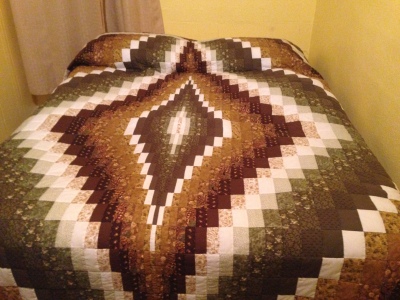As a sometimes leader and frequent participant of discussion and community-based groups, I’ve been subjected to many a “Get To Know You” or “Team Building” exercise. While these have been most common in the church and school groups that I have been a part of, you probably all know the drill: “Go around the room and tell us your name, occupation, and one fun fact about yourself,” or, “Let’s all do ‘Trust Falls‘ and bond with each other hope no one gets hurt!” These activities can often lead to a few fun moments and conversations, but I’ve often found them lacking and superficial. In my experience, forming community requires getting to know the people around you on a deeper level, and, second only to shared experience, the key to learning about a person is knowing what questions to ask.
Knowing that questions are important is one thing, but knowing what questions to ask has been, for me, quite another. Fortunately for me, one of the guys I lived with in Seattle was a crazy North Carolinian who had (and still has) a beard long enough to match his list of eclectic ideas and interests. He had struggled with some of the same questions as me, and lived out some possible answers: If strong relationships are forged in the places where we are challenged to get outside of ourselves and step into a new place together, are there questions to be asked in conversations that can take us through this process? How can we find common ground with people from diverse backgrounds to see each other as kindred spirits struggling to make a place in this world just as we are? His response to these questions was pretty adventurous and at the same time very simple: why don’t we just put a bunch of people from different backgrounds in a room together and start asking each other questions?
When my wife and I decided to start hosting some of our own dinners to get to know our community better, I consulted him on what worked for him, and what didn’t. After getting his suggestions, we tried out a few that we liked, added some, and modified others. I’ve found the prompting questions he gave me to be very helpful both in getting to know others and learning about myself. I’ve also had several friends who liked them so much they asked for their own copy of my list. So, I’d like to share them with you today, but before I do, I must make one stipulation: these questions should be asked within the context of a “social contract.”
The idea of a social contract, originally based on theories about government, is that within certain social situations, participants are implicitly agreeing to cooperate to achieve a collective benefit. What I mean by the use of this term, then, is that these questions must be asked in the context of a group where participants have at least somewhat bought in to the idea of going beyond the superficial, opening up, and doing it together, because this really isn’t about the questions, it’s about the thoughts, conversations, and actions that can flow from them.
Without further ado, here are the questions, in roughly normal to intense order:
1. What is something you learned recently that blew your mind?
2. What would be the first rule of your own island?
3. If your mind was a room, what would it look like?
4. What non-physical characteristic of the opposite sex do you find most attractive?
5. If you could do anything in public without being judged, what would you do?
6. If you could be instantly given the skills to do anything as a career, what would you choose?
7. What are one or two experiences/events in your life that have impacted and shaped you the most?
8. When do you/have you felt most connected to your creativity and/or spirituality?
9. If you could soapbox to the U.S. and/or world about anything, what would it be?
10. If there was a photo of you that described your whole life, what would you be doing in it?
If you have ideas for other questions to start meaningful conversations, please share your thoughts in the comments below.
